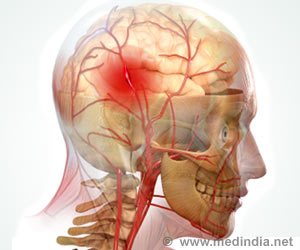Psychological interventions can cut down on deaths and CV events in patients suffering from heart disease, a new study revealed

Dr Zoi Aggelopoulou, a nurse and one of the study authors, said: "The nurses on our coronary care unit observed that patients were less likely to have another heart attack, die, or return to hospital when we talked to them about their treatment, played music for them or helped religious patients to say prayers. It made us think that coronary heart disease is not just physical but also has a psychological component."
She added: "We wanted to find out if others had observed the same thing, and whether psychological support had a real impact on the outcomes of patients with coronary heart disease."
The current study was a meta-analysis of 9 randomised controlled trials. The researchers evaluated whether psychological interventions could improve outcomes of patients with coronary heart disease when combined with a conventional rehabilitation programme.
The researchers found that the addition of psychological interventions reduced mortality and cardiovascular events by 55% after 2 years or more (relative risk [RR]=0.45, 95% confidence interval [CI]=0.37-0.54, p<0.001). The benefits were not significant during the first 2 years (RR=0.77, 95% CI=0.55-1.09, p=0.145).
Dr Aggelopoulou said: "We found a huge benefit of psychological interventions after 2 years, with less patients dying or having a cardiovascular event and therefore fewer repeat hospital visits. The interventions included talking to patients and their families about issues that were worrying them, relaxation exercise, music therapy, and helping them to say prayers."
Advertisement
Population-based studies have shown that psychological factors may have an influence on the likelihood of having a heart attack in the first place. The factors include depression, social isolation, low socioeconomic status, and chronic stress such as occupational or marital distress and stress from caregiving.
Advertisement
The researchers concluded that psychological interventions should be incorporated into the rehabilitation of patients with coronary heart disease. Dr Aggelopoulou said: "More clinical trials are needed to clarify which interventions are most effective and how they can best be implemented."
She concluded: "We can help our patients by simply talking to them or introducing new things like music therapy into our clinical practice. Coronary units are busy places – in Greece we sometimes have 1-2 nurses for 10-20 patients in the coronary care unit and we are under time pressure. But our finding that the addition of psychological support on top of physiological therapies reduces death and cardiovascular events by 55% should be a wake-up call that these interventions really do work. Preventing repeat hospital visits would free up the time we need to implement them."
Source-Eurekalert














